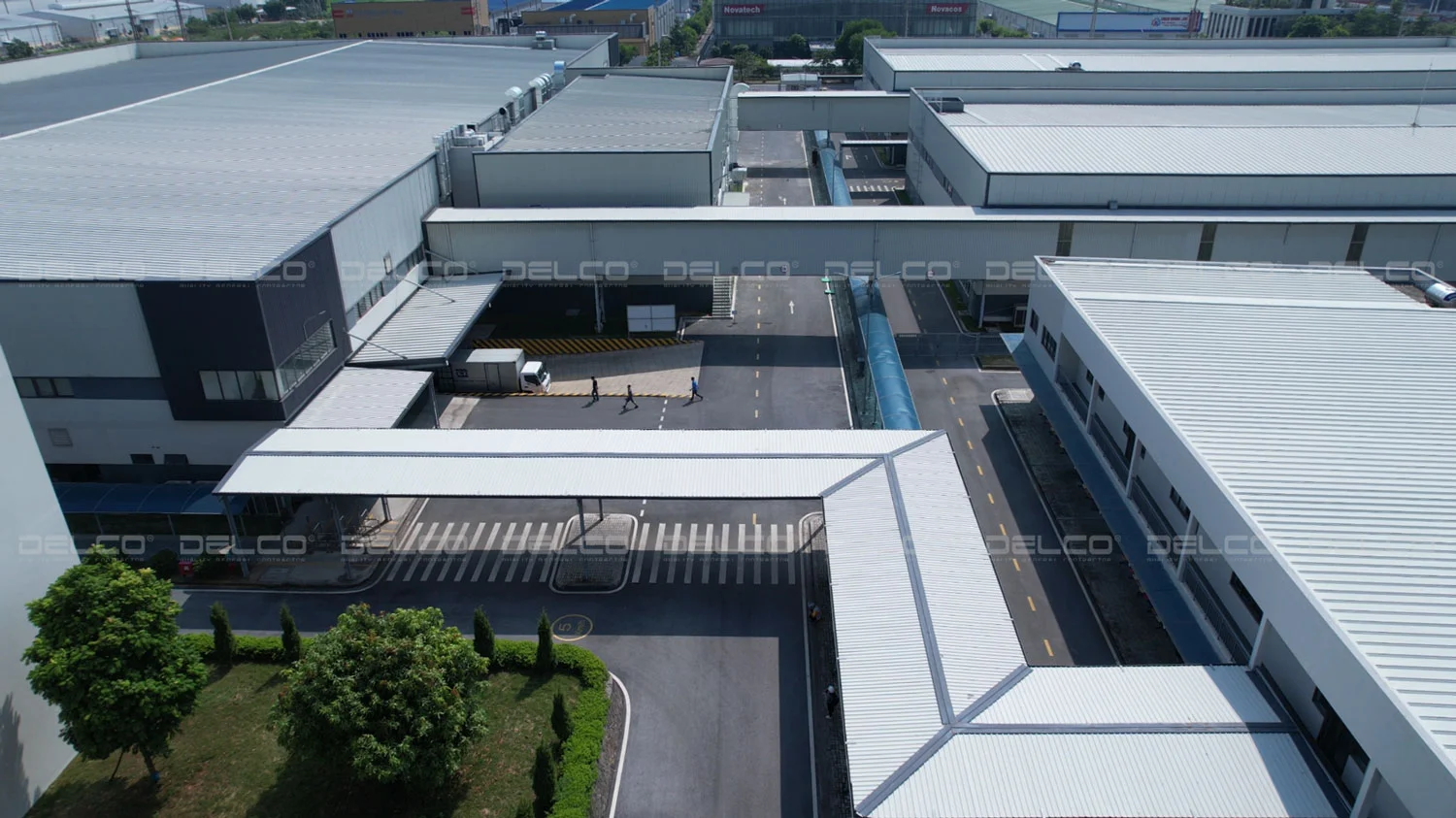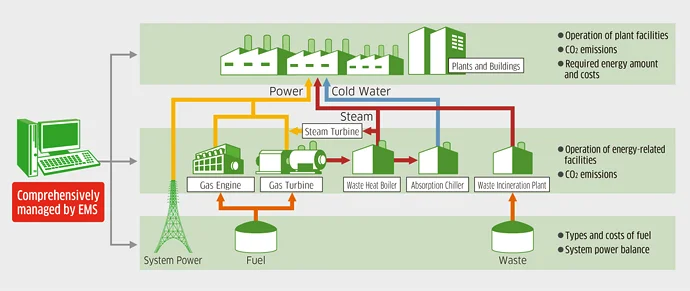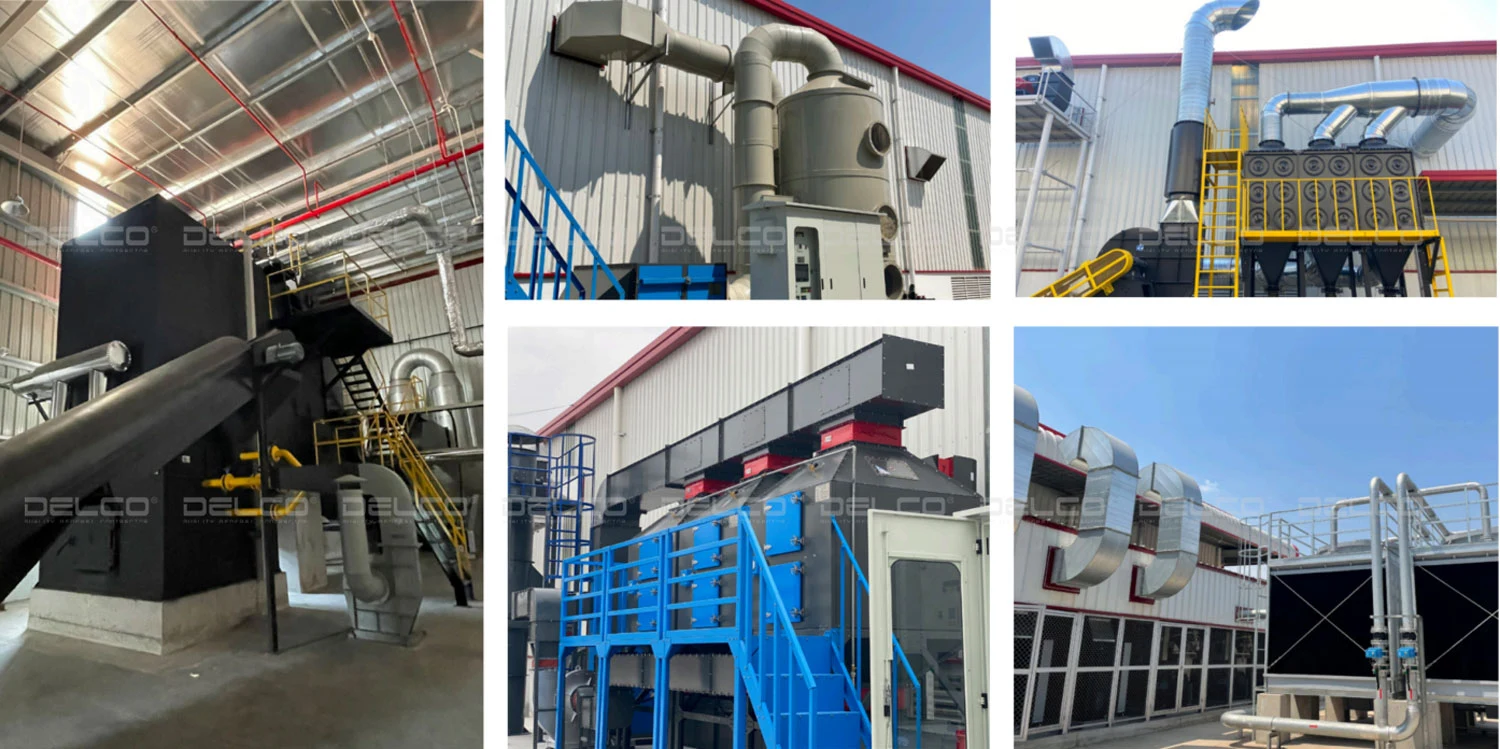In the context of globalization and increasing demands from investors, compliance with international standards during the factory fit-out process is a key factor to ensure construction quality and long-term operational efficiency. This is especially important for factories involved in export activities or with foreign direct investment (FDI), where international standards are mandatory to meet the requirements of highly regulated markets.
1. ISO standards
ISO 9001:2015 – Quality management system
ISO 9001:2015 is an international standard for quality management systems that helps organizations effectively manage processes from production to service delivery. Applying ISO 9001 enables fit-out contractors to ensure consistent construction quality, tightly controlled execution processes, and final products that meet the investor’s requirements.
Applicable industries: Mandatory for factories producing construction materials, fertilizers, shipbuilding and ship repair, wood adhesives, and petroleum products. Strongly recommended for sectors such as pharmaceuticals, food, cosmetics, medical equipment, automotive, aerospace, and electronics — to ensure consistent quality, meet customer expectations, comply with international regulations, and strengthen reputation.
ISO 9001:2015 requirements in factory fit-out include:
- Clearly defined procedures from design to construction.
- Quality control at every construction phase, with careful selection of high-quality, suitable materials.
- Risk management throughout the process — from supplier selection to on-site supervision.
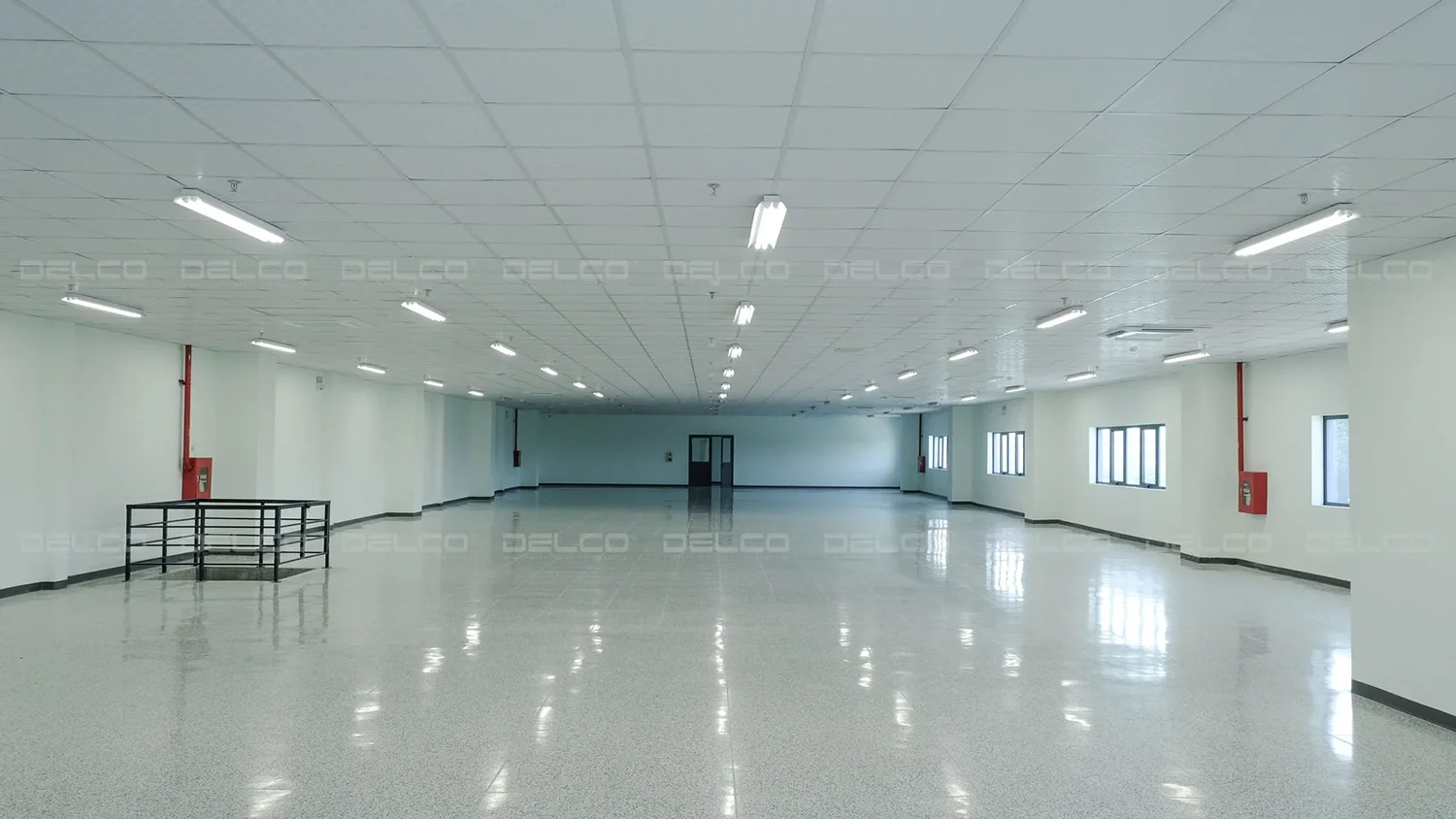
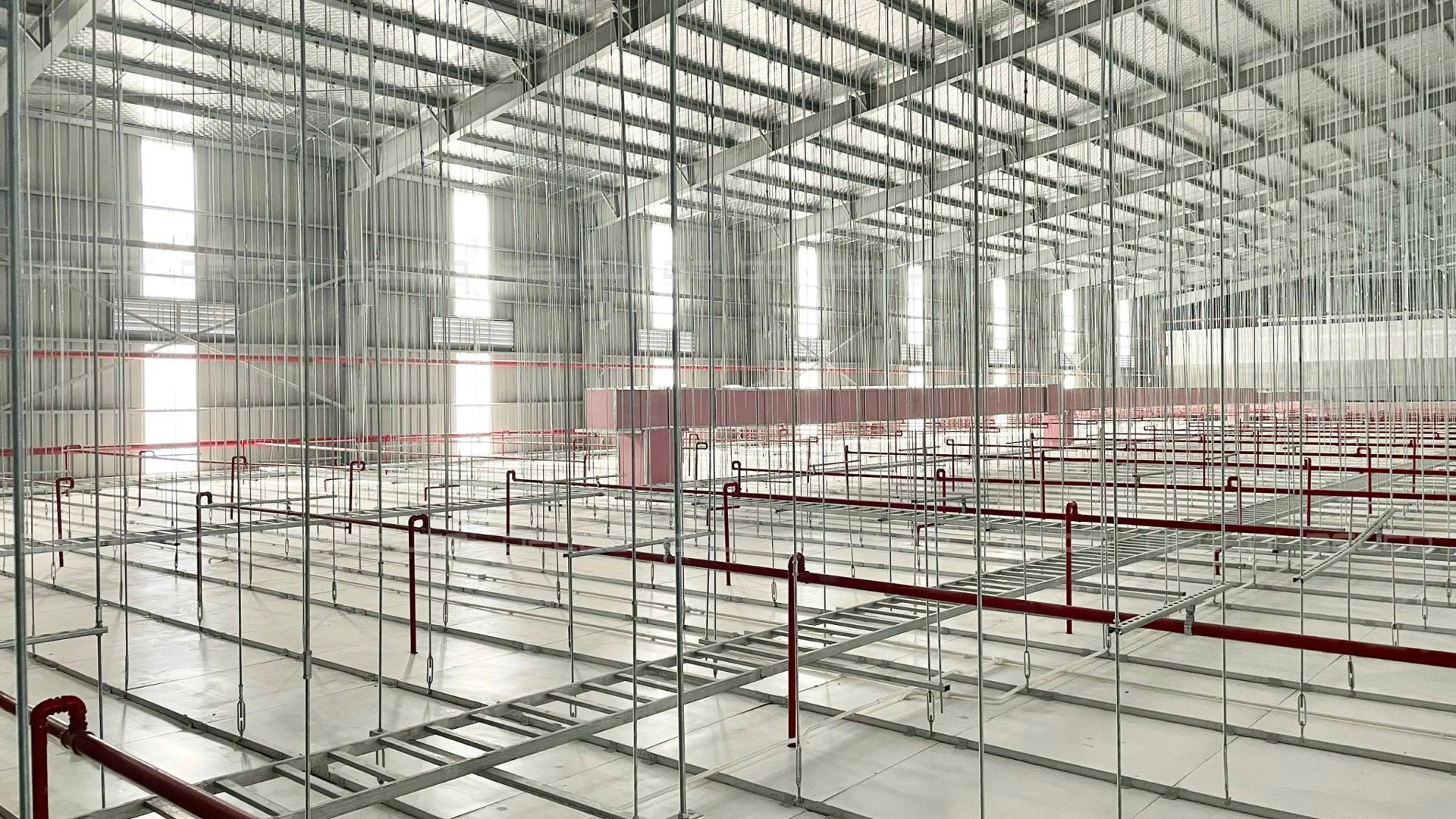
ISO standards for quality management are mandatory for electronics component factories.
ISO 14001:2015 – Environmental management system
ISO 14001 is an international standard that provides a framework for environmental management, helping organizations control the environmental impacts of their activities, products, and services. With this, factories can implement green technologies and sustainable processes to protect the environment, while also enhancing reputation and improving production efficiency.
This standard supports factories in monitoring and minimizing their environmental footprint, ensuring legal compliance, and improving environmental performance through resource efficiency and sustainable technologies.
Applicable industries: Mandatory for sectors with direct environmental impact such as paper manufacturing, mineral extraction, petrochemical refining, and food processing. Recommended for construction, electronics manufacturing, textiles, and logistics – to reduce pollution, conserve resources, meet environmental regulations, and enhance international credibility.
ISO 14001 requirements in factory fit-out include:
- Minimizing waste and using resources efficiently.
- Implementing measures to reduce pollution and improve air and water quality throughout construction.
- Ensuring compliance with environmental regulations at all stages – from design to construction and factory operation.
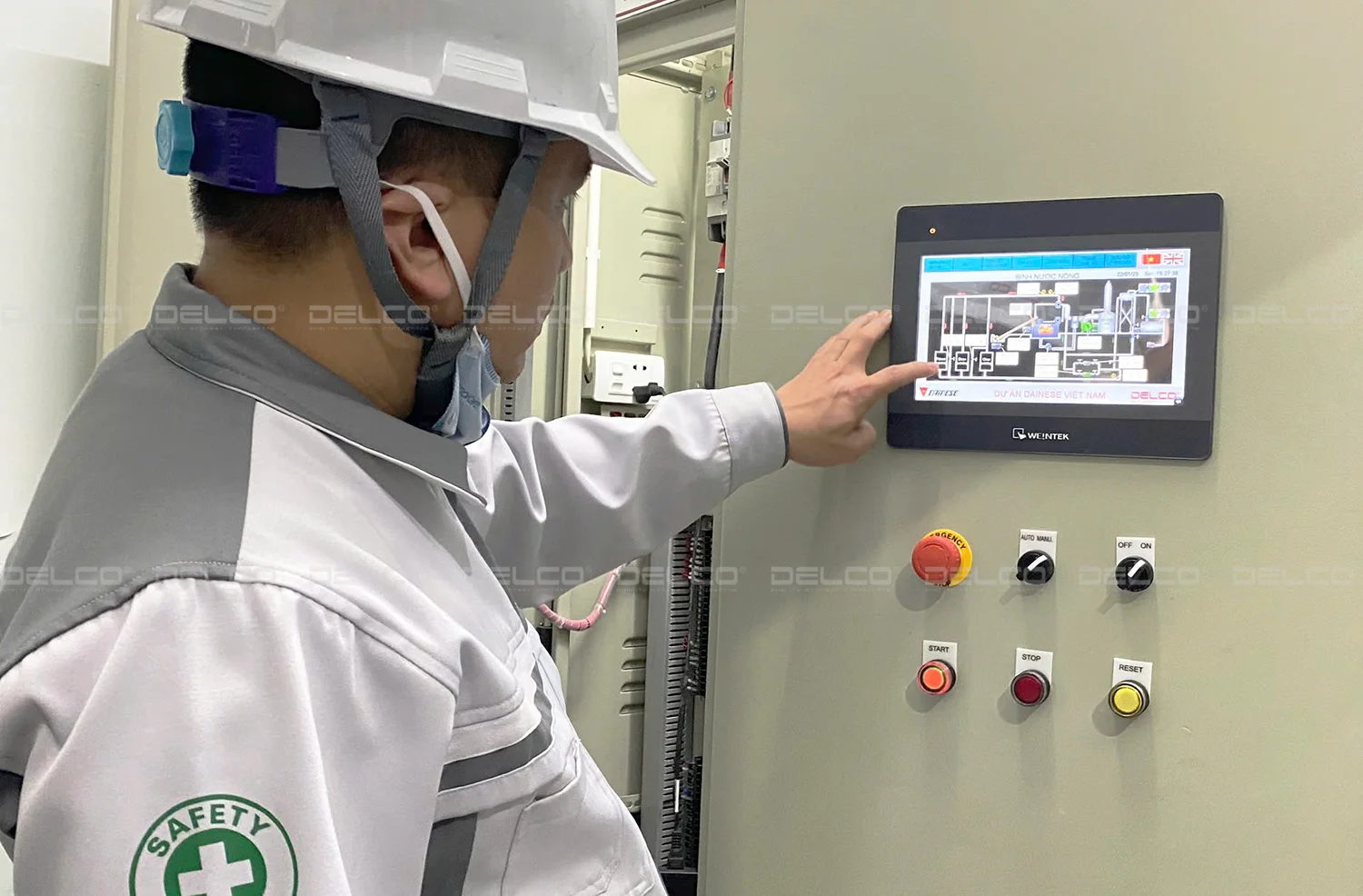
Factories that integrate smart factory solutions into their MEP systems can enhance energy efficiency and significantly reduce environmental pollution during operation.
ISO 45001:2018 – Occupational health and safety management system
ISO 45001 is an international standard that defines the requirements for an Occupational Health and Safety (OH&S) management system. It helps reduce workplace accidents, occupational illnesses, and improve the overall quality of the working environment. During the fit-out process, contractors must comply with safety requirements — from providing personal protective equipment to establishing safety protocols throughout construction.
Applicable industries: Not mandatory for any specific industry. However, it is especially useful and widely adopted in high-risk sectors such as construction, manufacturing, oil and gas, mining, and agriculture.
ISO 45001 requirements in factory fit-out include:
- Ensuring a safe working environment with health protection measures for workers and staff.
- Establishing safety procedures throughout the construction process, including protections during equipment operation.
- Providing safety training for on-site workers and employees.
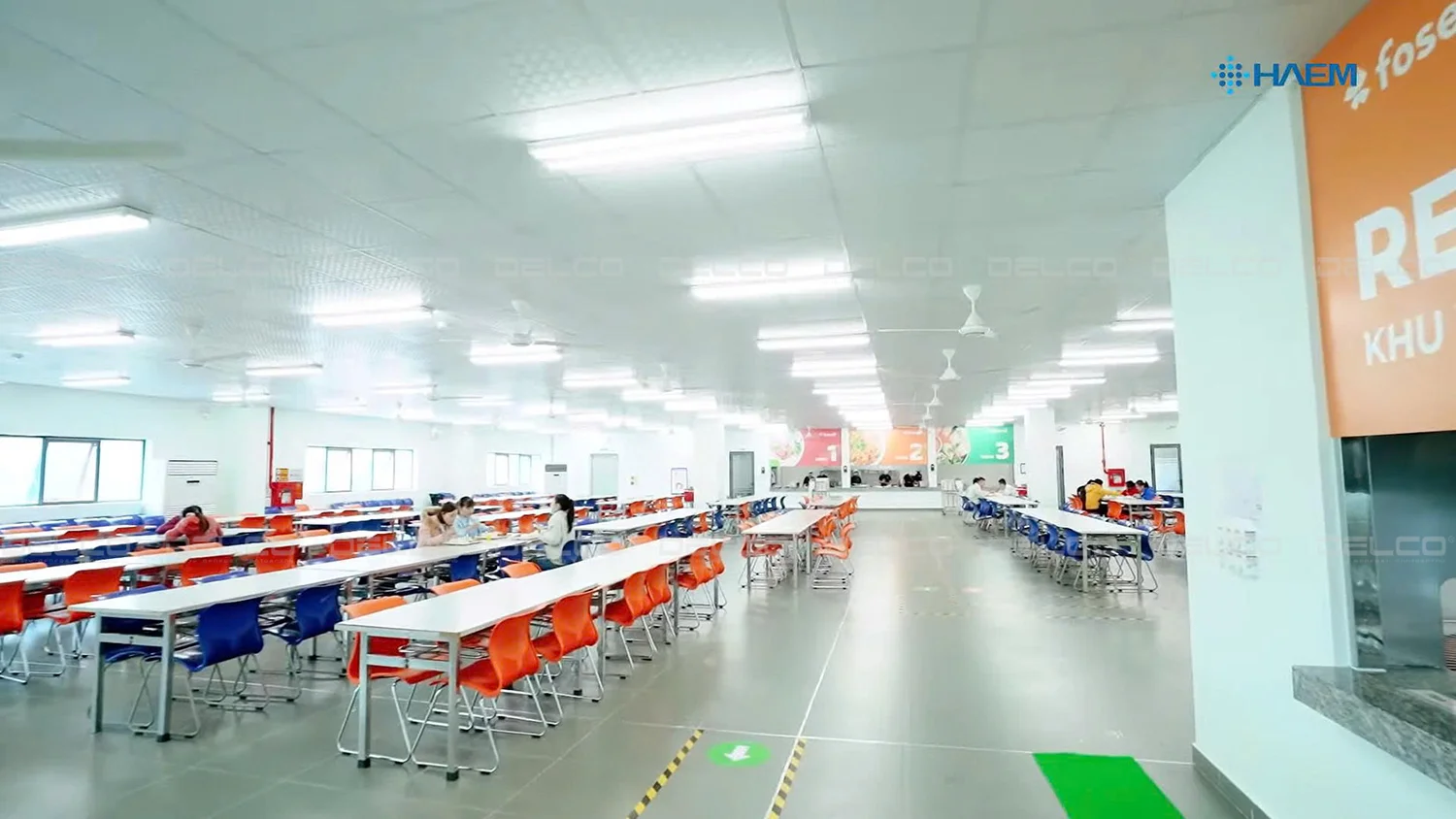
Haem Vina factory, by Delco as the Design – Build fitout contractor, is certified to ISO 45001.
2. GMP (Good Manufacturing Practices) standard
GMP (Good Manufacturing Practices) is an international standard that sets requirements for the design, construction, and operation of manufacturing facilities to ensure a clean production environment, strict process control, and minimized contamination risks, thereby ensuring safe and high-quality products.
Applicable industries: Mandatory in industries such as food, pharmaceuticals, cosmetics, and medical devices. Recommended for chemical manufacturing, food packaging, and processed agricultural products — to ensure product safety, quality, reduced contamination, and compliance with global market standards.
In GMP-standard factory fit-out, the following aspects require special attention:
- One-way production flow design to avoid cross-contamination between production stages.
- Building and finishing materials such as flooring, walls, and ceilings must be easy to clean, dust-resistant, and non-shedding
- HVAC systems must strictly control temperature, humidity, and airflow to maintain clean environmental conditions.
- Dead space–free layouts to prevent dust and bacteria buildup.
3. Cleanroom standards (ISO 14644-1 and Federal Standard 209)
A cleanroom is a controlled environment with strict limits on cleanliness, humidity, temperature, and pressure — essential for ensuring product quality in industries that require highly controlled production conditions, such as pharmaceuticals, electronics, food processing, and microchip manufacturing.
Applicable industries: Mandatory in pharmaceutical manufacturing, electronics, processed foods, and industries requiring ultra-clean environments (e.g., semiconductor fabrication, biotechnology).
Recommended for automotive components, optical devices, and research laboratories — to control dust and microbes, ensure product quality, and meet high technical standards.
ISO 14644-1 is the most widely recognized international cleanroom standard, replacing Federal Standard 209, which was the original U.S. cleanroom classification system. This standard defines cleanroom classes (Class 1, Class 10, Class 100, Class 1,000, Class 10,000, Class 100,000) based on the concentration of airborne particles, helping ensure quality in specialized production environments.
- Class 1: The highest level of cleanliness with extremely low particle counts.
- Class 10, 100, 1,000: Decreasing levels of cleanliness, with higher allowable particle concentrations.
- Class 100,000: The lowest level of cleanroom classification, used in environments requiring only basic dust control.
| Classification number (N) | Maximum allowable concentrations (particles/m³) for particles equal to and greater than the considered sizes listed below | |||||
| 0,1 μm | 0,2 μm | 0,3 μm | 0,5 μm | 1 μm | 5 μm | |
| Class 1 | 10 | 2 | ||||
| Class 2 | 100 | 24 | 10 | 4 | ||
| Class 3 | 1 000 | 237 | 102 | 35 | 8 | |
| Class 4 | 10 000 | 2 370 | 1 020 | 352 | 83 | |
| Class 5 | 100 000 | 23 700 | 10 200 | 3 520 | 832 | 29 |
| Class 6 | 1 000 000 | 237 000 | 102 000 | 35 200 | 8 320 | 293 |
| Class 7 | 352 000 | 83 200 | 2 930 | |||
| Class 8 | 3 520 000 | 832 000 | 29 300 | |||
| Class 9 | 35 200 000 | 8 320 000 | 293 000 | |||
Table: Particle concentration limits according to ISO 14644-1
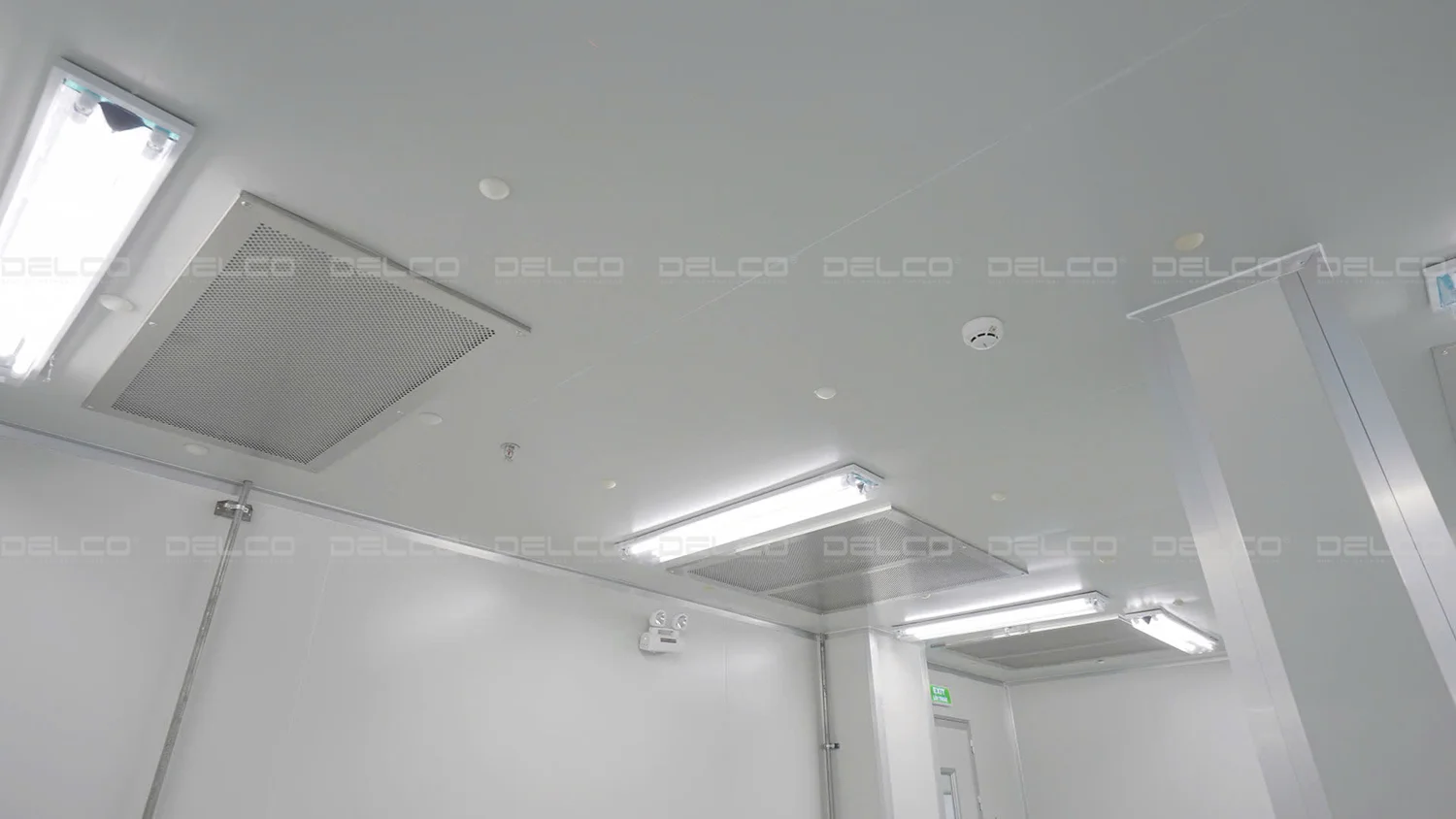
Cleanrooms require highly stringent standards for air filtration systems, flooring, ceilings, and wall partitions.
4. HACCP (Hazard Analysis and Critical Control Points)
HACCP is not a standard applied only during construction — it plays a key role during the factory fit-out phase. At this stage, design, systems, and materials must be optimized to meet hygiene and food safety requirements. Fit-out contractors must pay close attention to factors such as production flow design, the selection of easy-to-clean construction materials, and the installation of HVAC systems that meet hygiene standards to ensure the facility complies with HACCP.
Applicable industries: HACCP is not mandatory across all industries, but it is strongly recommended and widely adopted in food and beverage sectors. It is especially important for companies exporting to strict markets such as the U.S., the EU, and Japan.
HACCP requirements in food factory fitout include:
- Identifying potential hazards in the production process (physical, chemical, and biological risks).
- Controlling critical points in the production chain to maintain a clean and safe environment.
- Designing processing zones to separate areas with contamination risk, while ensuring proper ventilation and drainage systems.
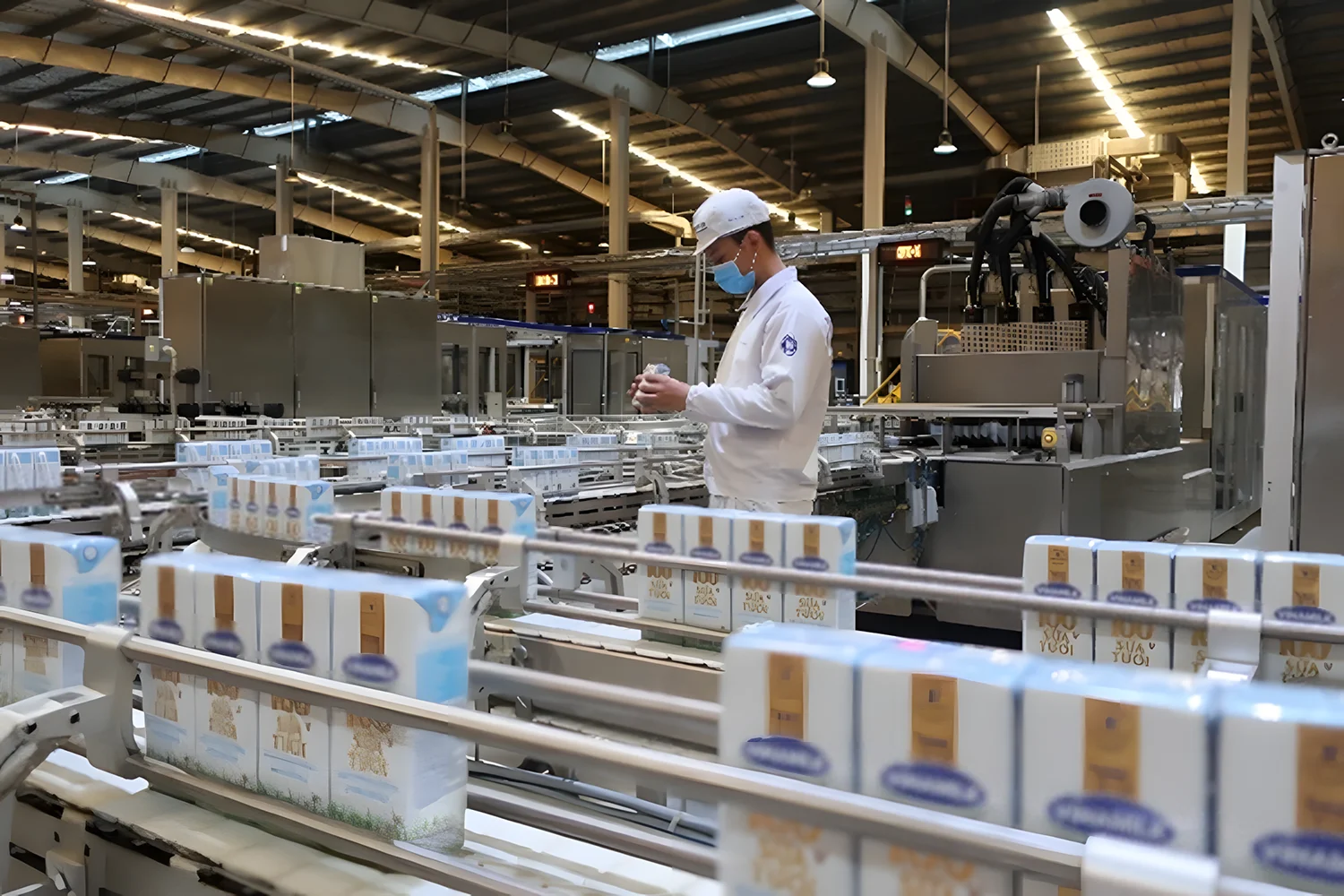
Vietnam Dairy Products Joint Stock Company (Vinamilk) ensures compliance with HACCP standards.
5. LEED (Leadership in Energy and Environmental Design)
LEED is an international green building certification system that focuses on constructing buildings with high energy efficiency, reduced environmental impact, and improved quality of life for users. LEED is applied not only during the construction phase but also has a strong influence during the fit-out stage, especially when a factory has been completed and is ready for lease. At this stage, investors may carry out renovations to meet tenant-specific needs while ensuring the facility qualifies as a green building. Common actions include installing LED lighting, upgrading ventilation systems, and using sustainable materials to create a workspace that complies with green building standards.
Applicable industries: LEED is not mandatory for any specific industry, but it is highly recommended for construction and real estate development — especially for commercial and residential buildings.
LEED fit-out requirements for factories include:
- Optimizing energy and resource use during both construction and operation.
- Improving indoor air quality through non-toxic, environmentally friendly materials.
- Reducing water consumption by using rainwater reuse systems or water-efficient fixtures.
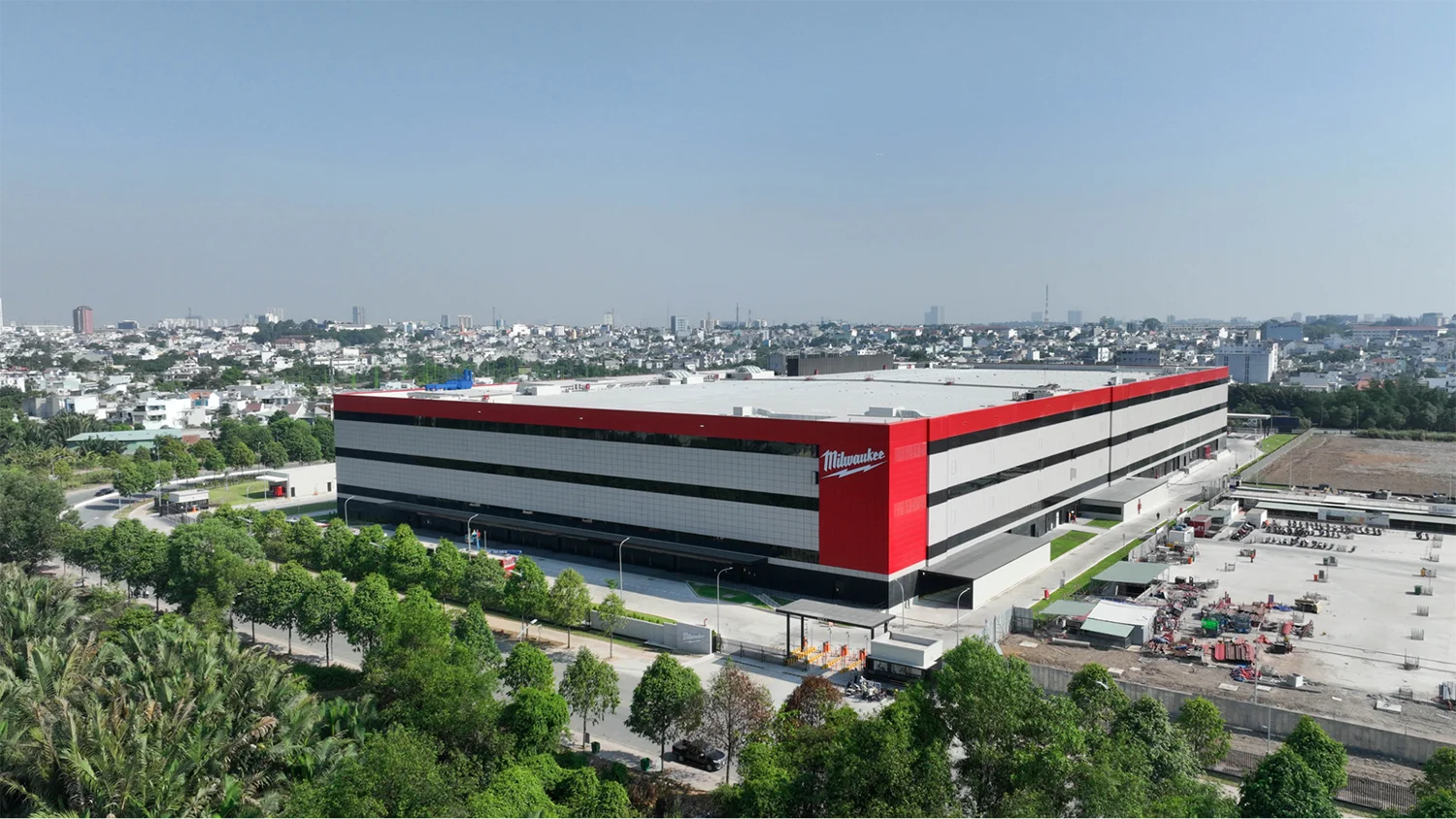
The Milwaukee factory by TTI Group in Ho Chi Minh City was awarded LEED Gold certification
Complying with international standards such as GMP, ISO, cleanroom, HACCP, and LEED not only ensures factory quality and safety but also improves operational efficiency and reduces long-term costs. For FDI investors and export-oriented businesses, these standards are essential to maintaining competitiveness and long-term sustainability. Choosing a contractor capable of implementing these standards is key to the success and lasting growth of any project.
See more: Quy trình fitout nhà máy đồng bộ từ thiết kế đến thi công tại Việt Nam
See more: Những thay đổi quan trọng về fitout nhà xưởng 2025


